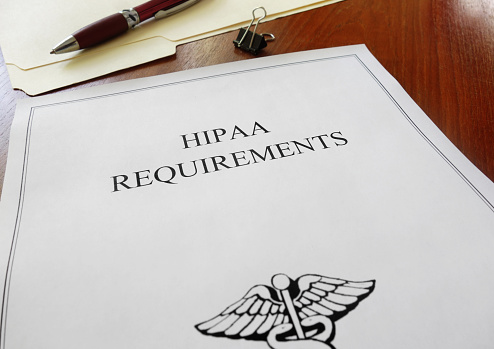Looking for IT Support In Wichita? Call Us Now! (316) 788-1372

Data breach is the number one cause of identity theft worldwide. Businesses have been forced to close their doors — and medical professionals have lost numerous patients — due to inadequate IT security. The smallest business in the world still needs to have the best security system in place when it comes to protecting their clients’ information.

Doctors and medical industries need to provide up-to-date malware software, which will prevent hackers from infiltrating their system. Once sensitive information is stolen, it causes grief for patients and their families, and it can bring financial ruin for the practice. There are at least six ways doctors can protect their patient information and maintain tight IT network security.
Large and Small Practices Should Be in Compliance with HIPAA Laws
Small practices have as much to lose as large practices. HIPAA laws are state-mandated for practices, businesses, organizations and medical companies. Employers, employees, and business owners should take every precaution to secure patient information from public and unauthorized access, by making sure all employees and managers are trained under HIPAA requirements and all IT security systems are HIPAA-compliant.
Perform a Security Risk Analysis
Businesses need to test and upgrade their security systems often. Patient record storage methods should be reviewed periodically. Employees should have minimum access to clients or patient’s information, and files stored on laptops, tablets and computers should be encrypted. Patient records should never be accessed off the premises without security precautions in place.
Train Employees on Potential Security Risks
Employees should be trained on how to spot phishing scams, suspicious emails and links, and fraudulent phone calls from scammers pretending to be IT personnel. They should also be cautioned about the risks of using public WiFi, sharing information on social media websites and networks, and accessing patient files from home or anywhere else outside the practice.
Take an Inventory of Patient Information
Patient information is often stored in various places in an office. If a paper trail is necessary, be sure to place the records in a secure location, under lock and key. Files kept on electronic devices should be encrypted, and only a few trusted employees should have access to such information. Computer systems should keep track of who accesses patient information and when, as well.
Protect Information from Employee Theft
Practices might find it difficult to believe that employees would steal a patient’s information and use it for their own personal gain. When a disgruntled employee is angry, they may mistakenly believe that the best way to take revenge is to release sensitive information. Employees have access to patients’ personal and sensitive information, and if stealing someone’s information is easy, angry employees may take advantage. For this reason, employees need minimum access to electronic health records, credit card numbers and bank account information.
Put a Data Breach Response Plan in Place
Train all appropriate staff members on ways to handle a data breach. Determine who is going to be on the team and what actions they need to take in the event of a data breach. The response team should document who has taken the training and what steps needs to be improved upon.
Taking the extra steps to secure patient information is worth the time and money. Doctors are being sued by patients for not taking the appropriate actions. To protect your practice and your patients, set up a training session, and hire an IT professional to perform regular maintenance and upgrade on electronic storage systems.